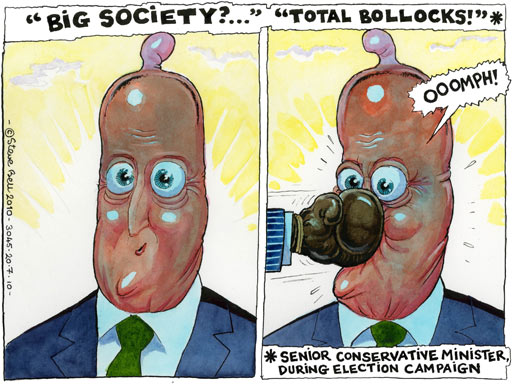
I suspect there are few people by now who are unfamiliar with that mixture of creeping dread and adrenaline that accompanies the first checking of one’s email account following a holiday. But for many I think the same now holds for Facebook – supposedly the medium of affable sociability and friendly connectivity, this casual means of communication also contains within it an injunction to ENJOY and an invitation to ENVY. There is a common (mostly American) televisual narrative trope which has been rendered moribund by Facebook, whereby a person receives an invitation to a High School Reunion. Upon receiving this invitation the protagonist is plunged into a world of introspective panic: Where is he in his life? Where is he going? But more importantly: Where are They in Their lives – his old classmates whose spectres seem to have been sent along with the invitation to haunt his suddenly paranoid present. How does his (un)success compare to Theirs?
Does this formula not seem quaint from our modern standpoint? Who now would need to await a letter (an actual physical letter!) to remind them of their classmates? What troglodytes are there left who aren’t receiving, via Facebook, constant status updates from their status-update-obsessed classmates? And university friends? And myriad aqaintances from times and places now forgotten? What was in the past a traumatic but transient period of panic-inducing comparisons to erstwhile friends is now a fundamental aspect of the way we interact. The spectres are part of the structure of the new mode of sociability. The social networking site, with its artificial maintenance of ties between people who have long ceased to maintain ties in reality, is a graveyard wherein the presence of people mostly serves to highlight their actual absence from our lives. You no longer have the comfort of real companionship with these people, but their exploits are nevertheless carved onto their digital tombstones for your inspection, along with the always-implicit interrogation: How does your life compare to this?
Rarely well. But then this is probably less to do with the quality of either your life or Theirs, and more do with the miserable gulf which separates the actual jouissance experienced in the having/using/doing of a thing, and the jouissance that we felt was promised by the linguistic-imagistic symbolisation of the having/using/doing of that thing (for example, the chasm that separates the actual pleasure had from drinking a can of Coke, and the obscene excess of ecstasy which was promised to you by the advertisement’s symbolisation of drinking that can of Coke). Most Facebook profile pages are to their authors what C.V.s are to job-seeking candidates or advertisements to products: a shameless effort at self-promotion conducted in ceaselessly positive prose. But in the case of the profile page what is being advertised is the author’s extent of access to jouissance. Photographs of drunken revelry, romantic canoodling, and touristic sightseeing function as evidence of jouissance which can be presented to the (Big) Other. There is thus a sense here that our social lives, as they are played out in the social networking matrix, are mirroring the target-oriented nature of work today, wherein the obsession with ‘box-ticking’ has meant, as Mark Fisher has written in Capitalist Realism, ‘a short circuit occurs, and work becomes geared towards the generation and massaging of representations rather than to the official goals of work itself... In capitalism, that is to say, all that is solid melts into PR’.
Is this melting not now equally relevant to our lives outside of work? What else can explain the ubiquitous tendency of tourists to walk around with their camera glued to their face like some obscene all-seeing proboscis? The compulsion to capture all on camera at the expense of a proper, meaningful engagement with the world, the replacement of actually seeing with being seen to have seen – this is what cultural tourism now amounts to (although it is maybe naive to believe that sightseeing was ever really anything other than this), and our social lives in general are similarly treated. Today, the cogito must be lengthened in order to accommodate the interpellating factors of reality TV, CCTV and the Facebook Me: I think I am being watched, therefore I am.
Increasingly it seems that reality is constituted for us by surveillance. The most immersive cinematic experience I have had in a long time hasn’t been anything in 3D but
Cloverfield, a film involving a Godzilla-like creature destroying New York, shot as if from a trembling handheld camera. Indeed, now, if a television programme wants to imbue itself with realism, it will adopt the documentary style of camerawork, since this style of amateurish angles and camera movement seems more realistic to us by its very invocation of the presence of a cameraman working his equipment. Videogame graphics today, as part of their very ‘realism’, have blood or rain splatter onto the front of the
player’s television screen – as if the droplets were on the lens of a camera recording the action. The knowledge of the presence of a camera no longer speaks of artificiality but of authenticity. Reality is forged through its own recording, like some quantum state decided by its very measurement. As so often it is Charlie Brooker who acerbically hits the nail on the head. On the ubiquity of screens today and its effect on how we process reality, he writes:
"When I venture into the moist green countryside, the lack of screens is stunning... When a cow saunters by without so much as a single plasma display embedded in its hide, I instinctively film it on my phone, so I can see it on a screen where it won't freak me out. Then I email a recording to the folks back home, so they can look it up online and tell me what it is. Ooh: apparently it's a type of animal. I get it now, now it's on my screen."


